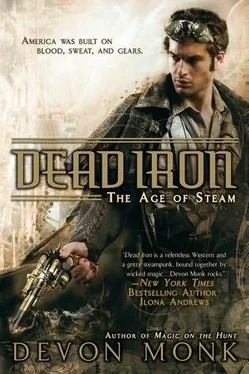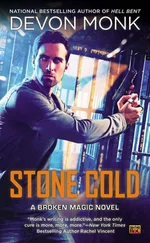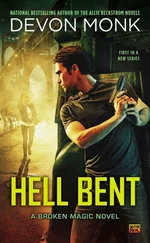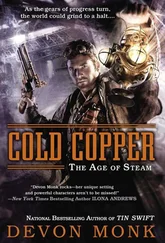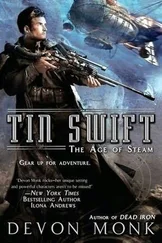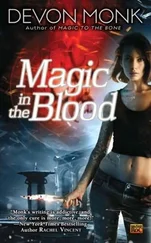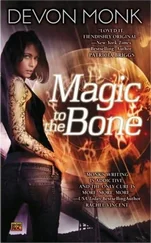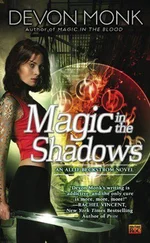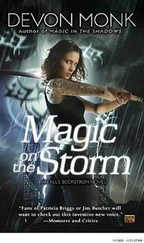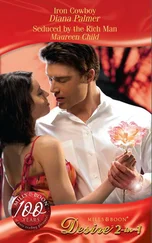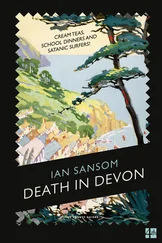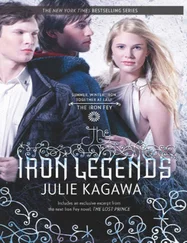Jeb beat the thing with its own arm, clanking away like a man pounding down a railroad spike. It squealed and squalled, bit and tore.
Jeb kept beating. Nothing but anger driving his arm that fell again and again like a pile driver. Nothing but anger driving him to keep going, keep killing, keep living so he could find his Mae. So he could kill LeFel.
Didn’t matter how much the matic tore into him. Didn’t matter the burns, didn’t matter the chunk of ear lying on the ground, the three fingers he was now missing. Anger mattered. And anger got the job done.
It took a while, maybe a full five or ten minutes, before Jeb realized the matic had stopped moving. By and by he came to realize he’d been pounding away on the ticker, pulverizing it into a shredded pile of metal and wood. Water dribbled out over the mess of it, water dark with ash and oil.
All of it going cold.
Jeb raised the arm one last time, but the ticker was undone, unstrung. He straightened and felt the ground beneath his feet sway. He was tired. Sore tired. But there were more tickers in the shadows waiting to crush his bones.
He looked up, through the water and blood and bits of flesh that hung wrong-ways on his face. He looked up to see how many enemies he had left to kill.
The shadows were quiet. Silent. The wind was quiet. He didn’t see any smoke rising. He didn’t see any white plumes in the night, no glow of eye, no glitter of iron.
But he did not drop his weapons. Did not drop the rope that he still clutched in one hand.
The dragonfly wings in his chest beat hard, scraping against the silver bars of its cage.
And then the shadows were pierced by two red eyes, each as big around as Jeb’s head. Jeb held very still, waiting for this new death.
The eyes disappeared, opened again, closer this time, disappeared again.
Dying made it hard on his reasoning faculties. But Jeb finally caught on to it. They weren’t eyes of one beast coming to get him. Moonlight scuffed over the iron hulls of two huge round balls, each the size of a horse, but twice as wide. They dragged thick links of chains behind them.
And just as Jeb got his arms up to hit them, fight them, destroy them, the chains whipped out and chomped shackles down round his wrists, metal cuffs with teeth that bit straight through his bones. The matic balls whipped past him, yanking to one side of the boulder at his back, near enough to try to rip his arms clean out of their sockets. Jeb dug in his heels and yelled, leaning forward with all his weight, with all his anger, on one bad leg and a broken ankle. The matics rolled to a stop behind him, knocking together like uncoupled railcars hitting head-on.
Jeb held fast, stretched so far forward he was near flat above the ground, as he strained to keep his arms in his sockets.
The matics whirred, clanked. Two heavy hisses of steam dampened the air. They weren’t pulling nearly as hard, and Jeb pushed his feet until he was standing straight again. He refused to step back toward them, but he did look over his shoulder.
The tickers had opened up at the bottom, and pushed out sets of wheels that were wrapped in a continuous track linked together and looped around like a belt.
Jeb pulled on the shackles, trying to break the chain between him and the matics. He was uncommonly strong. But the chains held fast.
A clank and puff of steam, and the tracks were rolling. Backward.
Jeb’s feet dug in tight, then slipped. He leaned against the pull, but the tickers rolled slowly, inexorably around the boulder he had kept at his back, and backward still. Dragging him, inch by inch, to his death.
There was a cliff just a short ways back. And that was where the tickers were aiming.
Jeb pushed harder, the dragonfly wings in his chest buzzing at the strain. He lifted one foot, paused to keep his balance as ground gave way beneath his other foot, then took a single step forward. His left arm slipped its socket and he yelled again.
The matics strained against him, like to take his arm off. But Jeb lifted his other foot, and took another step. The matics didn’t stop. They dragged him backward, tracks pulling harder, faster than he could outwalk them. Then a sharp tug yanked on his arms and he couldn’t hear the tickers grinding dirt no more.
For good reason. Jeb Lindson felt the ground give way as he was pulled by the tickers over the cliff’s edge, and down to his death.
Cedar Hunt paused on the leeward side of the ridge. The wind stirred, an unnatural gust in the otherwise still night. He crouched low, offering no silhouette against the darkness, his ears flat against his skull. He had lost control of the beast and left at least one cow dead before he had regained his hold over his need to kill. Now he followed the scent of the Strange and the boy. It had led him beyond town to this forest in a gully near the witch’s house.
Something Strange pushed the wind, pulled the wind. Something unnatural rode the night.
He sorted the scents. Oil, death. Something more. Blood, flesh gone to rot, and the hot, burning stink of green wood scorched by fire.
And the boy. Somewhere in those scents was the boy. The boy’s blood.
Cedar’s heart beat faster. That was what he had gone out into the night for. He tightened his hold on the beast, even as the blood hunger rose up his throat.
He had found the boy. And now he would save him.
Cedar ran, taking the quiet ways, the hidden ways, the ways of predator and prey. It didn’t take long for the wild rising wind to bring him more scents. Mr. Shunt, the rail man’s creature, was out in this night.
And Wil.
Cedar stopped, pulling his head back and up. The hunger surged, blinding his senses with the painful need for blood—Strange blood.
No. He pushed against the beast, pushed against the hunger, and inhaled the scents again. Could he believe, could he trust, what his nose told him was true? He sniffed the wind, catching the telltale scent of his brother, the texture of the living Wil.
Wil, who had always been laughing.
Wil, who had always been trusting.
Wil, who had died at the beast’s fang and claw, his fang and claw.
Cedar stuck his nose as high in the air as he could. Too many scents in that wind. Too many glints and hints of creatures, both living and dead. Wil. The bit of the world, the scent, that was uniquely Wil was there; he was certain of it. And it was not an old trail.
Wil was near the scent of the boy’s blood. They might be somewhere near each other. Not that it would have mattered. Cedar ran. Not for the boy he had promised to save. Not for the Holder he had promised to hunt. Not for the Strange the gods had cursed him to kill.
Cedar ran to find the brother who had been dead all these long years.
He was wild with that thought, that fear, that hope. Wil. Alive. Wil. Here. Wil. In this land, on this soil. Wil.
Instinct whispered trap and caution and death, but Cedar was getting better at silencing the voice, smothering it. He would find Wil, find this scent of him and follow it into the fires of hell if need be. He would find his brother.
Brush rushed past, limbs whipped and lashed, the sharp fear of prey, large and small, lifted on the wind, carried by pounding heart, hoof, and paw, as Cedar ran through field, hill, and valley, even his great speed too slow for his racing thoughts.
And then the wind shifted, bringing with it the heavy stink of the Strange. Of old blood and dark metals. Of broken things strung with pain.
Of Mae Lindson. The witch. The beautiful golden-haired widow who stirred his heart in ways he could not admit even to himself. Her scents, her terror, and, more than that, her pain thick on the air, stronger than the boy’s scent, stronger than the scent of his brother.
Читать дальше
